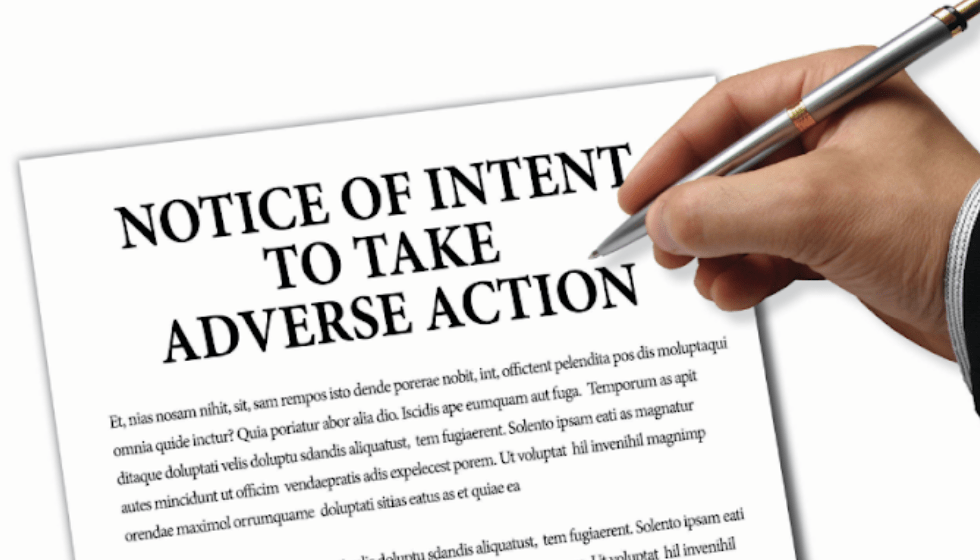
Employers rely on background checks to maintain a safe and productive work environment. As you vet potential hires, you must also meet legal obligations related to adverse action whenever you use background checks.
There’s a lot at stake when making employment decisions, and background check reports can figure heavily in your decisions. Before taking adverse action against a candidate or employee, you need to establish clear protocols for compliance.
Discover the laws and essential guidelines for employers to develop and maintain background check processes that align with adverse action compliance throughout the hiring process.
Key Takeaways:
- To fully grasp the significance of adverse employment action, you need to understand the concepts
and key terms. - Federal, State and Local Legislation often play vital roles in governing the adverse action processes
related to screening. - To navigate the complexities of adverse action compliance in background checks, employers must
follow a well-defined process. - To maintain background check compliance, you need robust processes that prioritize fairness,
accuracy, and legal adherence. - By prioritizing compliance with adverse action background check requirements, you can safeguard
your business against potential legal risks.
Adverse Action 101: Definitions You Need to Know
To fully grasp the significance of adverse employment action, you need to understand the concepts and key terms. Here are some of the concepts related to adverse action, and how they align with background check compliance.
Adverse Action: Broad Definition
Adverse employment action refers to any negative action taken by an employer against an employee or job applicant that affects their employment status, terms, or conditions.
For existing employees, such actions include termination, demotion, suspension, denial of promotion, or reduction in pay or benefits. For candidates, adverse action results in not getting hired.
Adverse employment actions are typically taken because of performance issues, policy violations, misconduct, or other factors considered detrimental to the employer’s interests. Adverse employment actions must follow applicable laws and regulations, such as anti-discrimination laws.
Adverse Action and Background Check Results
Adverse action in background checks refers to when employers take negative action against a job applicant or employee based on information from a background screening report.
This typically happens when the background check reveals relevant information, such as criminal records, credit history, or possibly a discrepancy on previous employment or education verifications.
However, before taking adverse action, federal law requires employers to provide the individual with a pre-adverse action letter, a copy of the background check report, and a reasonable opportunity to dispute the accuracy of the information.
This process is designed to protect individual rights and ensure that adverse action is based on accurate and fair information.
Adverse Action vs. Adverse Impact
Adverse action refers to the negative employment decision taken by an employer based on information obtained from a background check. This decision could include denying employment or terminating employment, including many other potentially negative outcomes.
Adverse impact refers to a situation where a particular employment practice or policy — such as the use of background checks — disproportionately affects individuals from a protected class (e.g., race, gender, age).
This disproportionate impact can occur even if the policy is neutral on its face. Adverse impact can occur when the use of background checks results in an unusually high rate of exclusion or adverse action against members of a protected class.
Employers should ensure that their policies around screening are job-related, consistent with, and limited to business necessity.
They should also consider alternative methods of evaluating candidates that may reduce adverse impact while still achieving their legitimate business objectives. Failure to address adverse impact can lead to discrimination claims.
Background Check and Adverse Action Regulations
Legislation plays a vital role in governing the adverse action process during background screening. Here are some of the regulations you need to follow to maintain a compliant hiring process.
Fair Credit Reporting Act
Obligations regarding adverse action in background checks for U.S. employers are primarily outlined in the Fair Credit Reporting Act (FCRA). The FCRA sets requirements for employers when using consumer reports — including background checks — for employment purposes.
It establishes guidelines for obtaining and using consumer reports, as well as what employers must do before taking adverse action based on such information.
Equal Employment Opportunity Commission Regulations
The federal Equal Employment Opportunity Commission (EEOC) provides guidance on how employers should consider arrest and conviction records in employment decisions to avoid discrimination.
Regarding arrest records, the EEOC states: “Although an arrest record standing alone may not be used to deny an employment opportunity, an employer may make an employment decision based on the conduct underlying the arrest if the conduct makes the individual unfit for the position in question. The conduct, not the arrest, is relevant for employment purposes.”
According to the EEOC, criminal history “will usually serve as sufficient evidence that a person engaged in particular conduct,” although the commission recommends that employers consider whether such convictions meet the standard for job-related exclusion.
NOTE: Although the FCRA generally permits use of arrest records for employment decisions, many State laws now PROHIBIT their consideration and use.
11 Steps to a Compliant Adverse Action Process
To navigate the complexities of adverse action compliance in background checks, employers must follow a well-defined process that upholds fairness and legal obligations. The following steps outline a comprehensive approach that ensures compliance and protects the rights of all parties:
- Before obtaining a consumer report for employment purposes, notify the applicant or employee in writing that their consumer report may be used for employment decisions.
- Obtain written permission from the applicant or employee to access their consumer report. Clearly state whether authorization extends throughout their employment.
- Screening companies providing the consumer reports are required to have you certify that a proper FCRA disclosure was provided to the consumer and written authorization was obtained, and that the report will only be used for your legal permissible purpose as recognized by the FCRA, and that your intended use will comply with all Federal, State and Local employment laws.
- Familiarize yourself with state laws regarding the use of consumer reports, as some states have restrictions.
- Before taking adverse action based on the consumer report, provide the applicant or employee with a pre-adverse action notice. This notice should include a copy of the consumer report and the most current Summary of Consumer Rights Under the FCRA.
- After sending the Pre-Adverse Action Letter, Copy of the Report, Summary of Rights, allow the individual an opportunity (many states require a certain number of days) to review the report, contest information with the Screening Agency or CRA, OR to request an individualized assessment with you to provide additional factors (related to the information). See EEOC Green Factors and check with your state or local government regarding special Fair Chance or Second Chance legal mandates.
- After taking adverse action, provide the applicant or employee with an adverse action notice — orally, in writing, or electronically (some states/cities may have additional legal requirements for this final communication), including but not limited to – California, New York, Illinois.
- The adverse action notice should include the name, address, and phone number of the consumer reporting company, a statement that the company didn’t make the decision, and information on the affected person’s right to dispute the accuracy of the information.
- Inform the individual of their right to request an additional free report from the consumer reporting company within 60 days.
- If using investigative reports based on personal interviews, provide written notice to the individual that such a report may be requested. Also notify them of their right to request additional disclosures and a summary of the report’s scope and substance.
- Securely dispose of consumer reports once they are no longer needed (consumer report information is highly confidential, restricted access data), making sure that the information can’t be read or reconstructed.


